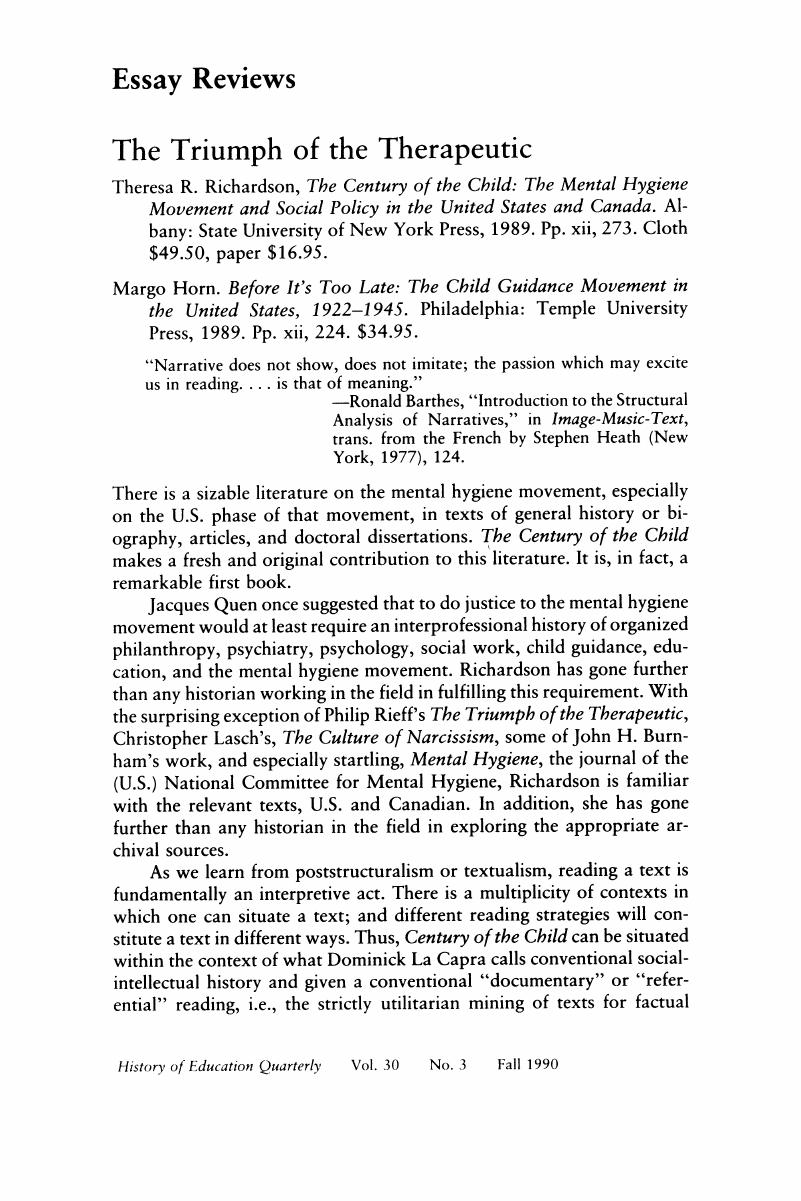No CrossRef data available.
Published online by Cambridge University Press: 24 February 2017

1 Capra, Dominick La “Rethinking Intellectual History and Reading Texts“ in Rethinking Intellectual History: Texts, Contexts, Language (Ithaca, 1983), esp. 25–26, 29–35; idem, “Rhetoric and History” in History and Criticism (Ithaca, 1985), esp. 18ff.Google Scholar
2 For example, Higham, John and Conkin, Paul K. eds., New Directions in American Intellectual History (Baltimore, 1979); Capra, Dominick La and Kaplan, Steven L. eds., Modern European History: Reappraisals and New Perspectives (Ithaca, 1982); Hollinger, David A. In the American Province; Studies in the History and Historiography of Ideas (Baltimore, 1985); Hunt, Lynn ed., The New Cultural History (Berkeley, 1989); and Bouwsma, William J. “Intellectual History in the 1980s: From History of Ideas to History of Meaning,” Journal of Interdisciplinary History 12 (1981): 280–93.Google Scholar
3 Goodman, Nelson Ways of Worldmaking (Indianapolis, 1978), ch. 7, esp. 109, 130–31, 138–39.Google Scholar
4 There is a fascinating discussion of the rhetorical problem of beginnings and endings in Hans Kellner, Language and Historical Representation: Getting the Story Crooked (Madison, Wis., 1989), 7–8, and ch. 3. That history is pre-eminently a rhetorical or textual enterprise is of course the major theme of Hayden White's Metahistory: The Historical Imagination in Nineteenth-Century Europe (Baltimore, 1973), Tropics of Discourse: Essay in Culture Criticism (Baltimore, 1978), and The Content of the Form: Narrative Discourse and Historical Representation (Baltimore, 1987), as well as La Capra's work.Google Scholar
5 In Gaylin, Willard ed., Doing Good: The Limits of Benevolence (New York, 1978), 69–95.CrossRefGoogle Scholar